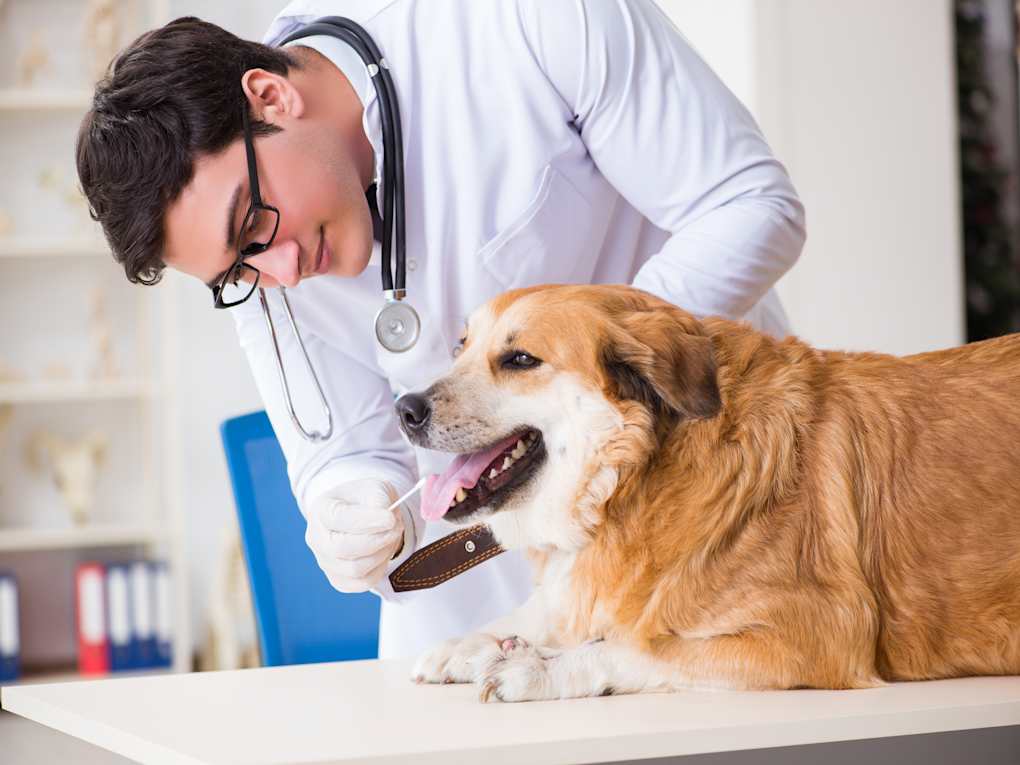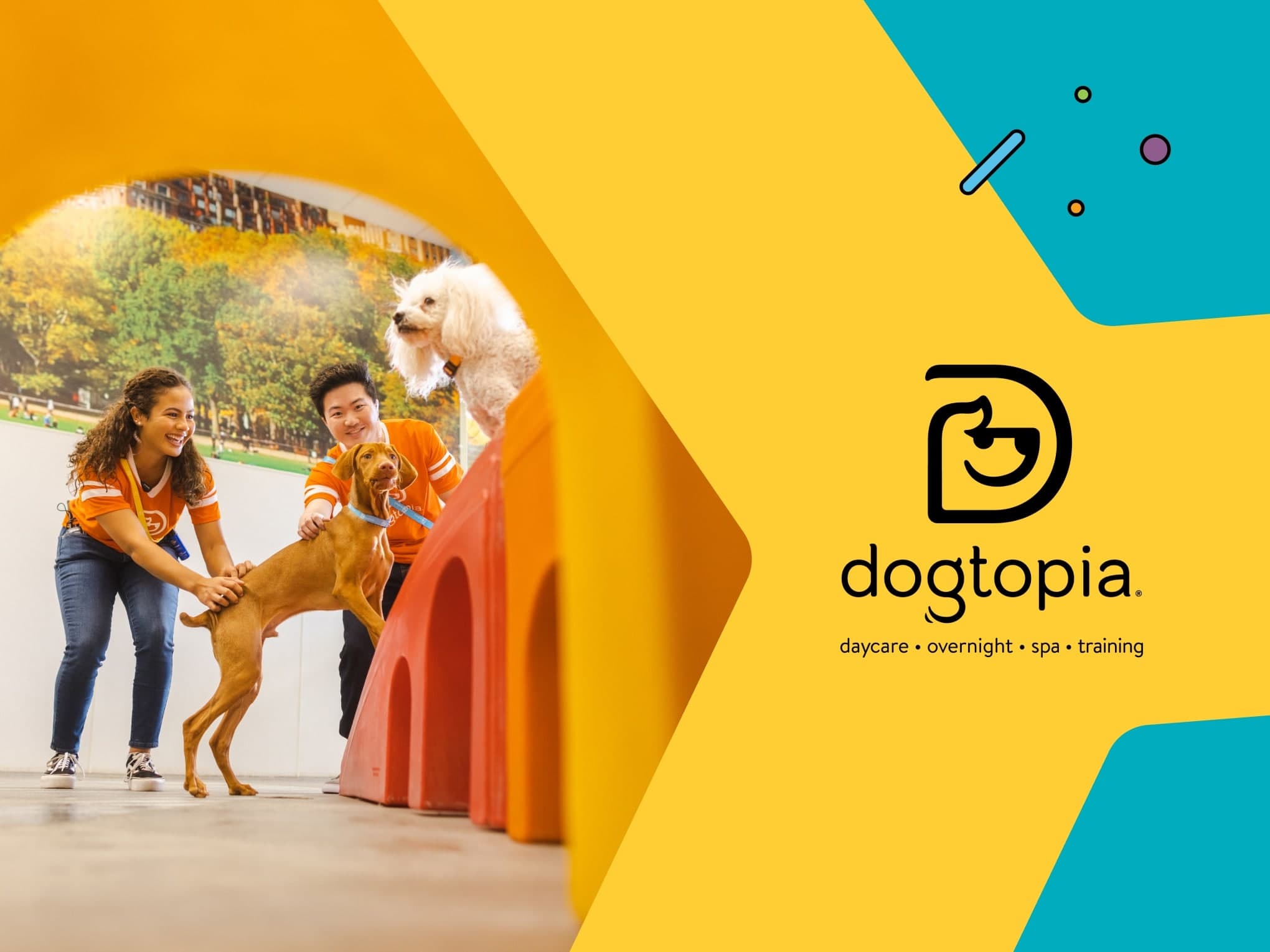We know it’s never easy to think about your dog getting older. You might have recently learned that your dog is older than you thought. Perhaps you adopted a senior dog, and you’re wondering what type of senior dog care is appropriate for them. Whatever the case may be, having an accurate idea of your dog’s age can inform the care choices you and your veterinarian make together.
If you know that your dog is entering their mature years, consider talking to your veterinarian about next steps for senior dog care. These questions can help you prepare and get the most out of your next appointment. (When you book your appointment, you may be able to request an extended exam time so that your vet has time to answer all of your questions.)
10 questions to ask about senior dog care
1. What health screenings do you recommend for senior dogs?
Some screenings, such as for parasites, are consistent throughout a dog’s life. There are some additional screenings your veterinarian may recommend when your dog becomes a mature adult or a senior.
Additional testing may include urinalysis, a complete blood count, blood chemistry, or other tests depending on your dog’s breed, age, medical history, and other factors. Your veterinarian can advise which tests are recommended for your dog and how often they should be performed.
2. Should I change my senior dog’s exercise routine?
Walking is still a great form of exercise for senior dogs. Physical activity is important for maintaining mental health, managing weight, and maintaining muscle mass. That said, you may see your dog start to slow down as they get older.
Hide and seek, swimming, puzzle toys, fetch, and controlled playdates are other good activity choices that can help keep older dogs mentally and physically healthy. Discuss these options, and others, with your veterinarian. Ask your vet what signs to look for indicating that your dog may need a break or that activity duration should be reduced.
3. How is my dog’s diet?
Dietary needs change throughout a dog’s life. Your veterinarian might discuss your dog’s current diet with you and see if any adjustments are recommended based on their age, weight, and lifestyle. Your vet may discuss not only what you feed your dog, but also how frequently you offer food and meal portion size.
Before the appointment, think about whether you’ve noticed any changes to your dog’s weight, eating habits, digestive health (including vomiting), stool, or urination recently. Having this information readily available will help you answer questions your veterinarian might ask about your dog’s diet. Take a picture of both sides of your dog’s food bag (or bring the can with you) so that your vet can see the specific diet and its nutritional information. Remember, treats, human food, and toys that include food also count as part of your dog’s diet.
4. Does my senior dog need any supplements?
Nutritional supplements should be tailored to a dog’s specific diet and health needs. Making sure your dog has a balanced diet is a good place to start. If your dog is getting all the nutrients they need from their regular meals, they might not need any vitamins or supplements.
The senior life stage may be the time a veterinarian recommends certain supplements, which may include:
- Omega fatty acids
- Prebiotics or probiotics
- Green-lipped mussel
- Medium-chain triglycerides (MCTs)
- Eye support
- Bladder support
Some older dogs benefit from a joint supplement, such as Embark Joint, in their golden years. Ask your veterinarian about signs that indicate arthritis, if joint supplements would be beneficial for your dog, and which brand(s) they recommend.
5. What vaccinations are appropriate at this age?
After initial vaccinations as a puppy, adult dogs continue to receive booster vaccines throughout their life. Your veterinarian might recommend certain vaccinations, depending on your dog’s lifestyle, region where you live, or other factors. Your vet can guide you on how often vaccines should be administered to a senior dog or about performing vaccine titers.
6. How often should I bring my dog in for a veterinary appointment?
Depending on your dog’s health needs, your veterinarian might recommend coming in once or twice a year for wellness examinations. Bring your dog to the vet sooner if you observe any abnormalities (e.g., an increase in thirst or urination, or a mass on their skin).
7. Should I change our teeth cleaning schedule?
If you’ve already established a regular teeth brushing routine with your dog, you’re off to a great start.
Dental health can become even more important later in life. As dogs age, the enamel on their teeth may become thinner or damaged. Talk to your veterinarian about proper tooth brushing frequency and a lifetime oral care plan. Keep in mind that age alone is not a reason for a dog to avoid an anesthetized dental cleaning. Your veterinarian might also ask about or look for signs associated with oral disease during this visit.
8. Should I make any changes to my home environment?
Older dogs may have limited mobility. While these measures aren’t necessary for every dog, some simple adjustments can help make your home senior-dog friendly.
Discuss with your veterinarian if your dog would benefit from non-slip mats around the house, ramps, or booties for some extra traction. Your vet might also recommend adding padded surfaces to your home or car to make sleeping and travel more comfortable.
9. Which types of lumps and bumps are abnormal?
Older dogs tend to develop more subcutaneous (under the skin) and dermal (in the skin) tumors. These tumors can be benign or could indicate a more serious condition. Talk to your veterinarian if you’ve noticed that your dog has any new lumps.
While veterinarians can’t say exactly what type of tumor it is by physical examination alone, they may recommend next steps, such as a fine needle aspiration or a biopsy. It’s a good idea to have a tumor checked out sooner rather than later if:
- It has grown quickly
- It is bigger than 1 centimeter across
- It does not move freely under the skin when you touch it
- It feels hot to the touch or is painful to your dog
10. How is my dog’s vision?
As dogs get older, their eyesight may not be what it once was. The good news is that dogs generally adjust well to slow vision loss, and it is usually painless.
Some signs that your dog might be having trouble seeing include:
- Reluctance to go down stairs
- Reluctance to go into a dark room or outside at night
- Bumping into door frames or corners
- Difficulty fetching toys
There are many causes of decreased vision. Nuclear sclerosis is a normal age-related vision change and does not require any treatment, while a condition like cataracts may require intervention. Your veterinarian can provide more insight after a thorough examination.
Proactive senior dog care
Senior dogs might require a few special considerations, but being proactive with their care can help you ensure that they stay happy and healthy well into their golden years. Learn more with our expert tips on providing age-appropriate care for your dog.















